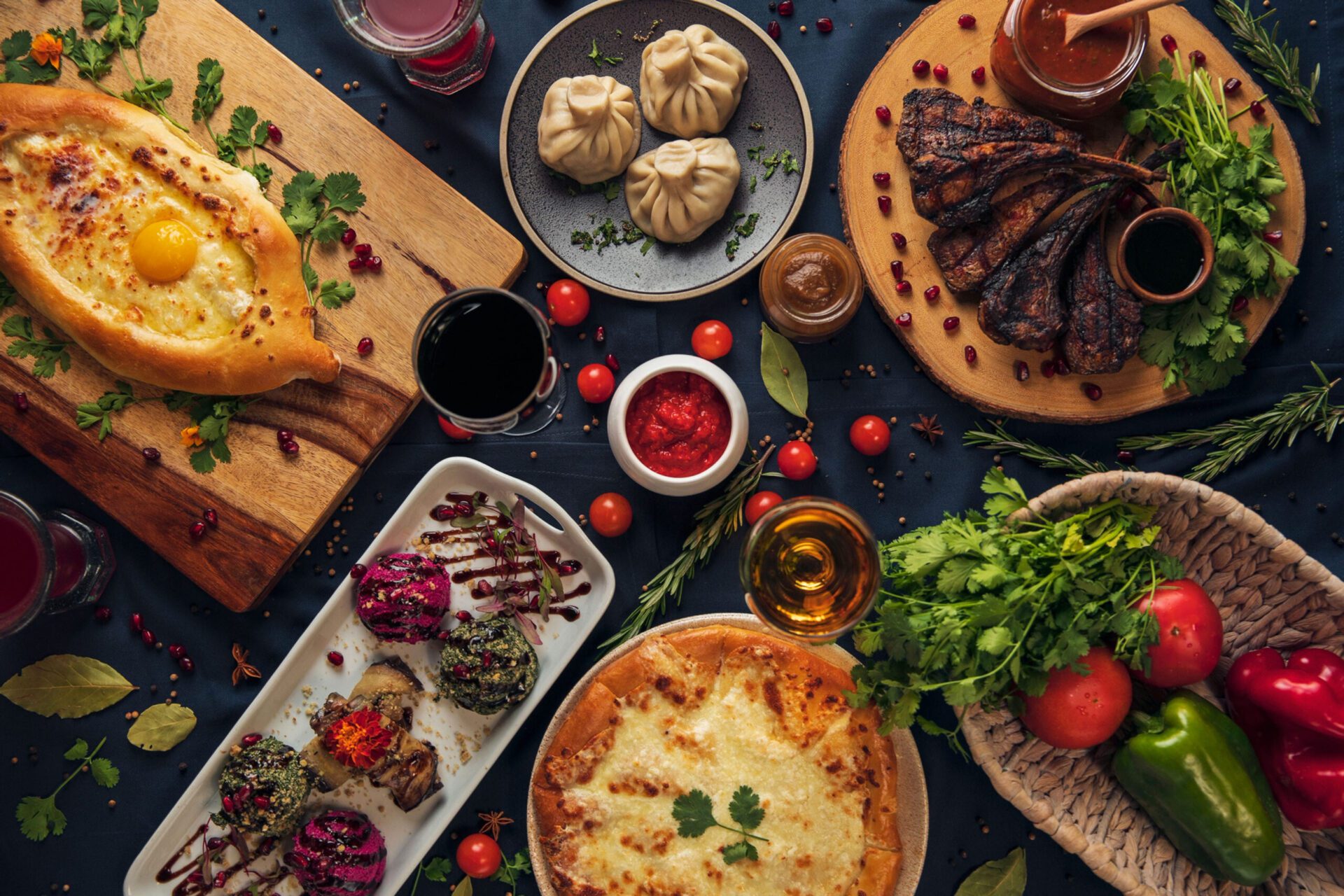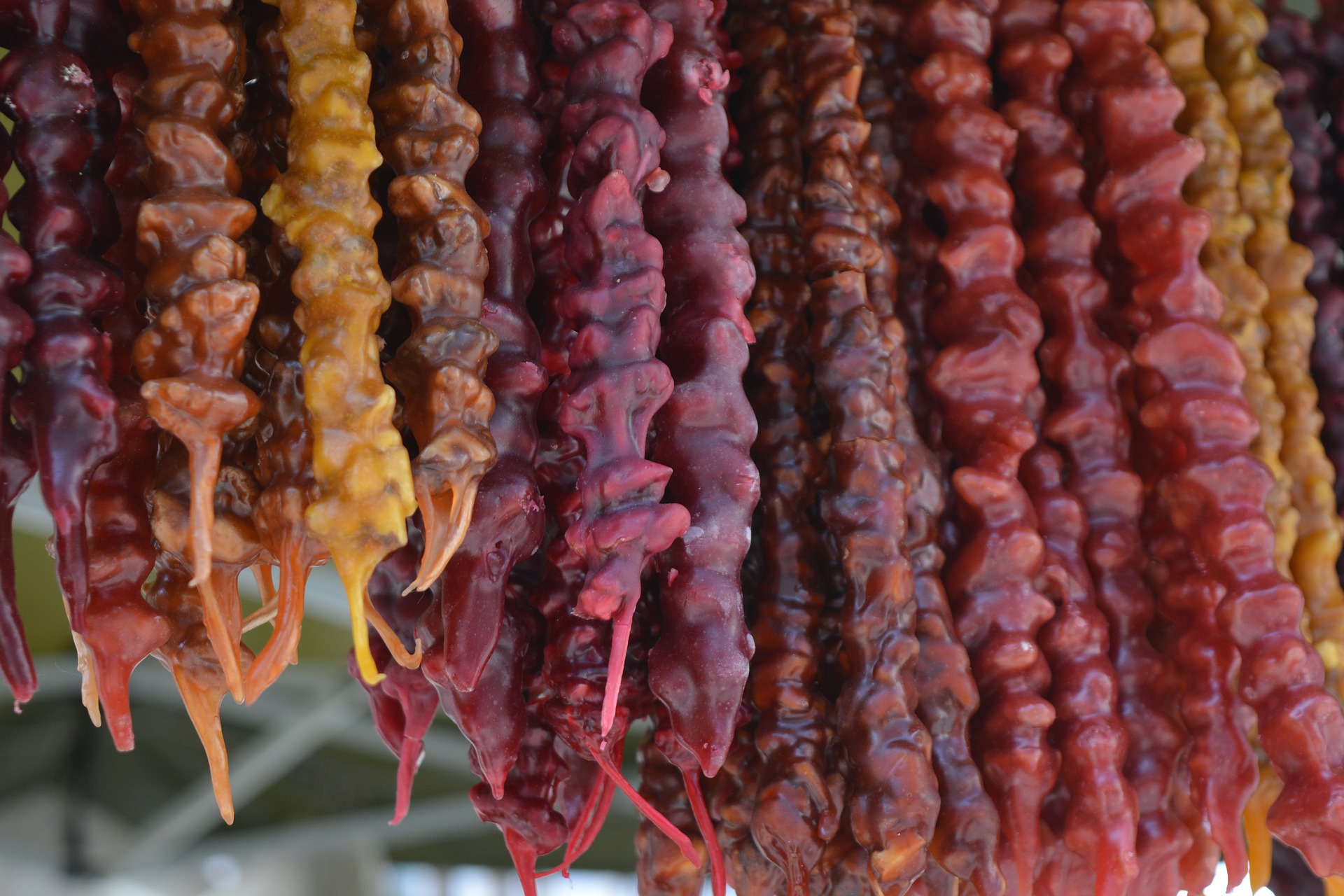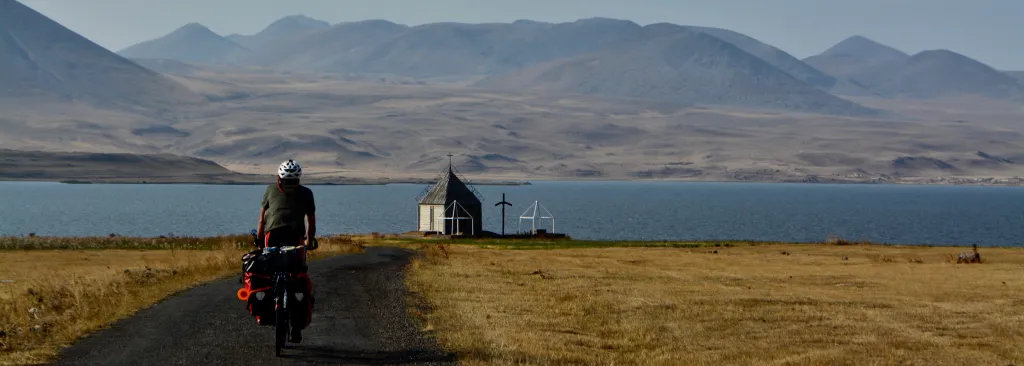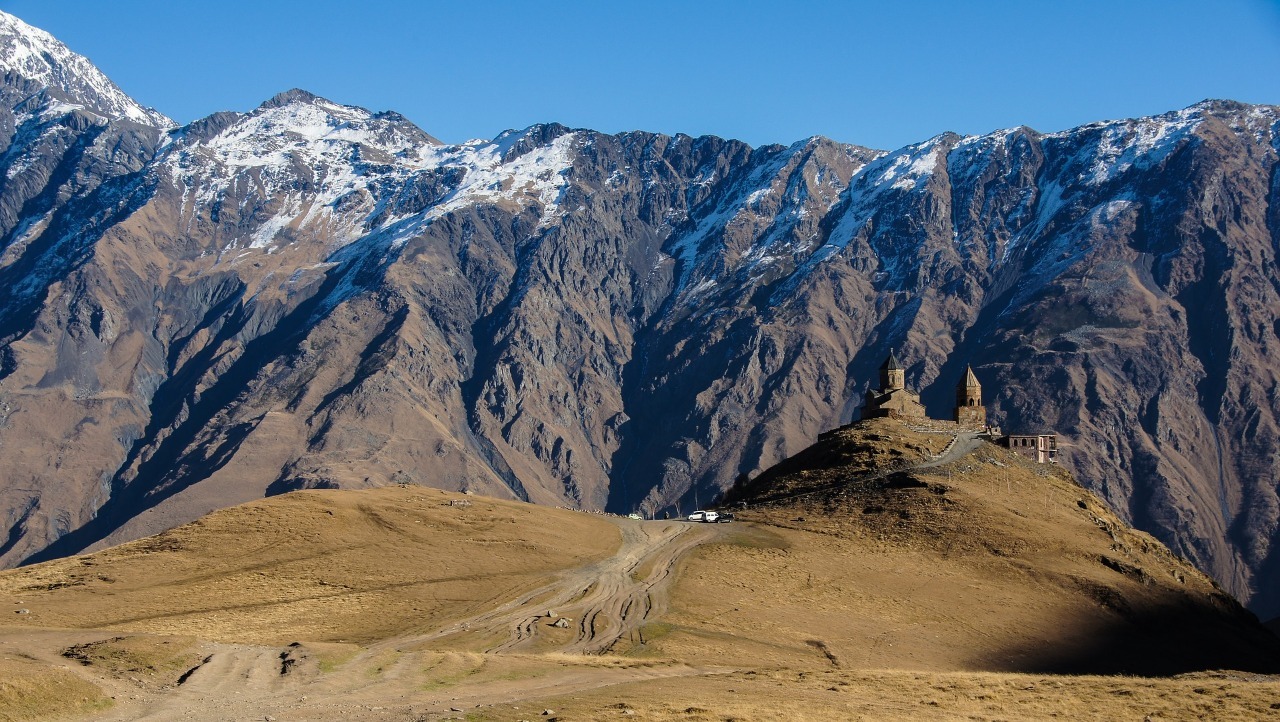Culture and Gastronomy
Gastronomy and table culture are very important in the daily life of Georgians. There is something for everyone in this small country! Georgian cuisine offers a wide variety of meat and/or vegetable dishes. The cuisine varies from region to region. Food culture and ingredients depend on geography and socio-historical background. During this delightful adventure, we will take part in culinary traditions and prepare examples of traditional cuisine together with our hosts. Let’s not forget that wine is an essential part of Georgian gastronomy, so our table will always be accompanied by an alcoholic beverage that goes well with our meal. So, what can we expect from this trip? Hints and snippets of history and culture, and lots of gastronomy!
-
Destination
Tour Plan
Arrival in Tbilisi and departure for Gudauri ski resort
Arrive in Tbilisi, meeting at the airport and transfer to the hotel.
Transfer: Private vehicle, approximately 30 minutes, 20km.
Overnight in Tbilisi.
City tour of Tbilisi and Museum of Recipes
Visit the Recipe Museum to discover the history of Georgian gastronomy. In the evening, dinner in a typical Georgian restaurant, accompanied by folk songs and national dances.
Transfer: Private vehicle, approximately 2h.
Walking time: approximately 3h.
Overnight in Tbilisi.
Khakhetian Wine and Cuisine
After arriving in Kakheti, we begin our journey at the Ikalto monastery and academy - a 12th-century educational center, where we can learn about the ancient method of winemaking and its preservation. We then visit a typical ethnographic house with a family wine cellar to learn more about Georgian Qvevri wine-making and taste their family wine.
Our culinary journey continues in Alvani, the village where we discover the typical local cuisine of the Kakheti mountain population. Here, livestock farming is the mainstay of their livelihood, and they make extensive use of dairy products for cooking, which are prepared in a very different way to other regions. From these natural dairy products, we now prepare the traditional pastry "Kotori" (typical cheese pie) and "Dambalkhacho" (cottage cheese with melted butter).
Our next destination is Alaverdi Cathedral (11th century). The road then leads to Telavi, the region's administrative center.
Transfer: Private vehicle, approximately 3h, 140km.
Overnight in Telavi.
Typical cuisine traditions of the region
Visit a local family in Kvareli to bake traditional bread, prepare "Churchkhela" (made with grape juice before it starts to ferment, flour and nuts) and the Georgian barbecue "Mtsvadi" (in season, the barbecue can be replaced by the widely known and particularly loved Georgian dish "Chakapouli": a mixture of meat (veal or lamb), plenty of herbs and green plums, cooked in a pan).
After lunch, which is fairly high in calories, we head for a small medieval village, Sighnaghi, with its narrow cobbled streets and superb panorama of the Alazani valley. Visit to the Bodbe monastery.
Return to Tbilisi.
Transfer: Private vehicle, approximately 3h30, 210km.
Walking time: approximately 1h.
Overnight in Tbilisi.
Making Khinkali, the pride of local cuisine
Drive to the famous "Mythical Caucasus", crossing the legendary Georgian Military Road, one of the most beautiful roads in the world, through valleys, ravines and finally the Cross Pass at 2,300 meters altitude. Arrival at Stepantsminda, Kazbegi.
In the evening, we prepare a special dish of the region, "Khinkali" (dumpling), with a local family. Khinkali is traditionally prepared with meat (beef or lamb), but can also be made with cheese, vegetables or mushrooms. We also prepare "Pkhlovani", a typical Georgian pie with cheese and local lettuce.
Transfer: Private vehicle, approximately 3h, 160km.
Walking time: approximately 1h.
Overnight in Kazbegi.
Country of Soups
Before embarking on a new culinary adventure, we'll visit the ancient troglodyte town of Uplistsikhe, dating from the 2nd century BC and overlooking the Mtkvari River.
Arrival in Gori, birthplace of Joseph Stalin, and opportunity to visit the museum complex, his home and his armored car. We then visit a local house and prepare "Chikhirtma", chicken soup - very popular in the country (depending on the season, we can prepare Cornelian cherry soup or wild sorrel soup). Of course, we won't fail to prepare "Khabizgina" - a kind of Khachapuri with a mixture of cheese and potatoes.
Transfer: Private vehicle, approximately 4h, 215km.
Walking time: approximately 1h30.
Overnight in Gori.
Departure for the "Capital of Gastronomy"
Arrive in Kutaisi to discover the soul of the city. Visit the renovated Bagrati Cathedral - the symbol of the city - and the Gelati monastic complex - recognized by UNESCO as a World Heritage Site.
After your cultural visits, it's time to try your hand at preparing local dishes. Visit a local family to prepare different types of typical appetizers called "Phkali" (vegetables and herbs with nuts and spices) and "Mtchadi" (bread baked with corn flour), the perfect accompaniment to Pkhali. We can't miss the delicious "Tabaka" dish of our adventure (chicken with blackberry sauce), the traditional main course of the region.
Transfer: Private vehicle, approximately 2h30, 150km.
Walking time: approximately 1h.
Overnight in Kutaisi.
Simplicity creates unforgettable exceptional flavors
Before discovering the gastronomic wonders of the region, it's absolutely essential to visit the churches of Barakoni (18th century) and Nikortsminda (10th century) - the church ornaments are as beautiful and mysterious as the flavor of the region's cuisine. After the tour, we visit a local family to discover the local cuisine: today we will be preparing "Lobio", red beans with well-smoked ham in a clay pot. Our second dish is "Shkmeruli" - chicken with garlic and milk (the name of the dish comes from a small village in the area) and "Lobiani" - a kind of Khachapuri but filled with beans.
Transfer: Private vehicle, approximately 2h, 75km.
Overnight in Ambrolauri.
Spicy tastes in the Land of Spices
On the way, we can visit the natural Prometheus cave at Tskaltubo.
Arrive in Zugdidi and visit a local family. Our local hosts help us prepare a typical Megreli dinner with : "Elarji" (a kind of porridge made from corn flour) with a very typical cheese called "Sulguni" which is a pride of the region's cuisine; and "Satsivi", turkey or chicken cooked in a nut sauce flavored with spices. We'll also have the opportunity to discover the secret of the magic spice "Adjika".
Transfer: Private vehicle, approximately 4h, 210km.
Walking time: approximately 2h.
Overnight in Zugdidi.
Cuisine of High Mountains
Then off to Mestia - the administrative center of the Svaneti region. Svaneti is one of the most important regions in the myth of the Argonauts, who used to obtain gold from lambskin. Situated on the southern slopes of the Great Central Caucasus, it is surrounded by peaks between 3,000 and 5,000 meters high.
Visit the ethnographic museum, which boasts a rich cultural collection from the Stone Age to the present day, including examples of Medieval Orthodox Art.
We will then meet the locals to prepare the region's typical dishes: "Tashmijabi" (a kind of French aligot), whose distinctive feature is the authenticity of its ingredients - potatoes grown in this region and cheese made from local natural milk. We also have the opportunity to prepare "Chvishtari" - small pieces of special bread made from corn flour mixed with cheese. We finish our dinner with a richly flavored and calorie-rich traditional dish from Svanetia: "pork with vegetables".
Transfer: Private vehicle, approximately 3h, 140km.
Walking time: approximately 1h.
Overnight in Mestia.
Road to Upper Svaneti for new culinary discoveries
After a short stroll through the village, it's time to prepare "Kubdari", the culinary symbol of the region. Most of the time, the locals prepare Kubdari with beef cut into small pieces and with spices specific to the region, but in this case, we prepare it according to an ancient traditional method - Kubdari with trout. Trout caught in the river with salt and a mixture of herbs, garlic and spices is wrapped entirely in a sheet of leavened dough.
In the evening, return to Mestia.
Transfer: Private vehicle, approximately 3h30, 95km.
Walking time: approximately 2h.
Overnight in Mestia.
The Black Sea cuisine
Departure for Batumi - the modern city on the Black Sea coast. Visit to the Batumi fish market. The market has a small restaurant whose staff cook Black Sea seafood for us.
After the culinary discoveries, visit the Batumi Botanical Garden, located on a hill overlooking the Black Sea coast. The garden is rich in interesting species of flora, and opens onto a magnificent view of the sea.
In the evening, visit the town of Batumi, strolling through its narrow streets and white buildings.
Transfer: Private vehicle, approximately 5h30, 270km.
Walking time: approximately 2h.
Overnight in Batumi.
The flavors of the Adjara region
The gastronomy of the Adjarian region is very authentic. Local produces give all dishes an extraordinary taste and flavor, but the dishes are quite fatty, so we have to be careful not to consume large quantities of these foods, even if it's not easy at such a rich table.
The culinary part of the day includes "Borano" - cheese melted in butter; "Sinori" - fine wheat bread called "Lavashi" cut into small pieces and put in a white cheese sauce with butter and garlic; "Malakhto" - green beans with nuts and spices. And of course, "Adjarian Khachapuri" - boat-shaped pastry filled with cheese and an egg yolk as a symbol of the sun - is a traditional dish dedicated to fishermen.
Transfer: Private vehicle, approximately 1h30, 55km.
Walking time: approximately 2h.
Overnight in Batumi.
Local tea and desserts
After a hearty portion of dessert, we continue our journey to the south of the country - the Samtskhe-Javakheti region. We stop in Borjomi, the administrative center of the Samtskhe-Javakheti region. Borjomi is famous for its natural mineral waters.
Transfer: Private vehicle, approximately 5h, 270km.
Walking time: approximately 1h.
Overnight in Borjomi.
The Land of Bread
Visiting a local family, the hostess shows us how to prepare the typical "Kada" pastry - a flaky pastry in the shape of a small bag filled with a salty mixture of flour and butter, normally prepared by the locals in a large traditional oven. We prepare the "Meskhuri Khachapuri" in the same oven as the Kada, again with puff pastry and local cheese. A particularity of the region's cuisine is the use of dried goose meat and snails. This time, we prepare our well-known “Khinkali” with snails or goose meat.
Transfer: Private vehicle, approximately 2h, 110km.
Overnight in Vardzia.
Return to Tbilisi through the region of trout
In the morning we visit Vardzia - troglodyte site, located at the left bank of Mtkvari river. The monastery complex caved in a rock, is XII-XIII CC Georgian picturesque monument, high mountains and rock cliffs, special kind of architecture. We visit this site which still requires a good physical shape - the multi-storey caves are connected by narrow tunnels, carved into the rocks.
Before departure to Tbilisi, we can stop at a cafe located near Mtkvari river just below the Vardzia cave and taste freshly caught trout which is the specialty of this place.
Return back to Tbilisi via Paravani Lake and its beautiful surroundings.
Transfer: Private vehicle, approximately 4h30, 230km.
Walking time: approximately 2h.
Overnight in Tbilisi.
Departure
Transfer: Private vehicle, around 30 minutes, 20km.
Tour Location









































